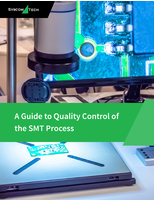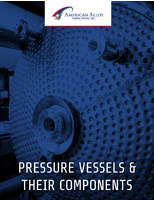ATA applauds ASTM on passing jet fuel specification.
Press Release Summary:
ATA President and CEO James C. May applauded ASTM International Aviation Fuels Subcommittee for passing synthetic jet fuel specification. According to May, it signals beginning of new era for production/use of cleaner, alternative fuels that will help industry meet environmental goals and provide airlines with competitive options for purchasing fuel. ATA also supports the testing and review synthetic fuel has received to ensure it meets or exceeds safety/performance standards.
Original Press Release:
Air Transport Association Applauds ASTM International Subcommittee Passage of Synthetic Jet Fuel Specification
WASHINGTON, June 25, 2009 - The Air Transport Association of America (ATA), the industry trade organization for the leading U.S. airlines, today applauded the ASTM International Aviation Fuels Subcommittee for passing a new specification that will enable the use of synthetic fuels in aviation. This step by ASTM, a standards development organization, is a watershed event and sets the stage for the blended fuel to receive full ASTM approval by the fall of this year.
"The action of the ASTM subcommittee is a landmark step for all consumers of jet fuel," said ATA President and CEO James C. May. "It signals the beginning of a new era for widespread production and use of cleaner, alternative fuels that not only will help the airline industry meet its environmental goals but also will provide airlines with more competitive options for purchasing jet fuel while simultaneously enhancing U.S. energy security."
The ASTM subcommittee action had two key components: it approved a process for various classes of alternative fuels to be added to the jet fuel specification, while specifically supporting synthetic fuels derived from the Fischer-Tropsch process to be the first alternative included under the specification. Once approved by ASTM, this synthetic fuel can be blended up to 50 percent with conventional, petroleum-derived jet fuel and used by commercial air carriers and private aviation operators, as well as in U.S. military applications.
ATA strongly supports the rigorous testing and review that this type of fuel has received to ensure that it meets or exceeds current standards for safety and performance. ATA has been a vocal advocate for alternative aviation fuels, and is a founding member of the Commercial Aviation Alternative Fuels Initiative (CAAFI), a partnership between aerospace interests and the Federal Aviation Administration (FAA) to advance the production and acceptance of alternative aviation fuels. Read more about the airlines' alternative fuels commitment and frequently asked questions on the ATA Web site.
"ATA is grateful, in particular, for the technical input and leadership that FAA has shown as chair of the ASTM International Aviation Fuels Subcommittee. It has been a true team effort," said May.
ATA airline members and their affiliates transport more than 90 percent of all U.S. passenger and cargo traffic. For additional industry information, visit www.airlines.org.
CONTACT:
Elizabeth Merida
202-626-4205
Victoria Day
202-626-4141




